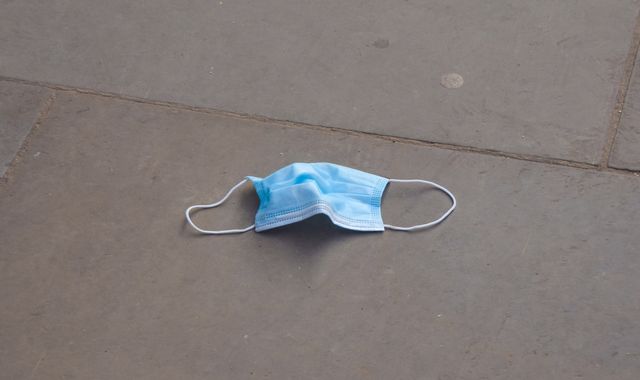PM’s customs option remains on the table, Business Secretary insists
Written by News on 06/05/2018
Theresa May’s preferred post-Brexit customs option remains on the table, the business secretary has insisted.

Greg Clark highlighted the threat additional border checks could pose to potentially thousands of jobs as he argued in favour of adopting a customs partnership with the European Union.
But eurosceptic Conservative MP Jacob Rees-Mogg claimed the warning was akin to the “Project Fear” strategy Brexit supporters accused the Remain campaign of adopting during the 2016 referendum.
The prime minister has put off a decision on the government’s preferred customs option after her Brexit “war cabinet” failed to reach an agreement.
:: The PM’s customs union options
:: Brexit Forensics: Car industry braced for bumpy ride
A number of ministers spoke out against Mrs May’s preferred option, which would see Britain collect tariffs on behalf of the EU for goods destined for the bloc, with companies potentially claiming back a rebate if products remained in the UK on a lower tariff regime.
The PM has promised to leave the EU’s customs union, but what system replaces our membership of the trading bloc, in which goods move freely across borders without tariffs, has emerged as a key fault line in the Brexit debate.
Mr Clark’s intervention will be seen as further evidence Mrs May is sticking to her guns in the face of demands from some of her MPs for her to drop the customs partnership.
It comes after the PM wrote in The Sun on Sunday about her “absolute determination to make a success of Brexit, by leaving the single market and customs union”.
Citing the example of Toyota to make his case for the customs partnership, Mr Clark told the BBC’s Andrew Marr Show the model would mean parts could be imported without any checks at the border or paperwork.
He claimed the company was in the process of making big decisions about future production and there were concerns about how its “just in time” manufacturing model would deal with customs checks.
Toyota employs 3,500 people in the UK – and Mr Clark said jobs had to be at the forefront of Britain’s future customs model.
Mr Clark said: “Of course business wants certainty. Everyone recognises that. But every business that I talk to wants the certainty that the agreement is the right one.
“No one wants the certainty, which is available at any time, of simply collapsing the negotiations, saying ‘well we’re not going to bother with this, we’re going to accept frictions at the border’, for example.”
Mr Clark said it would take time for the new arrangements to be sorted out, adding it was “possible” the new infrastructure may not be in place until 2023.
He added: “So what I’m suggesting is as part of the work over the next few weeks, I think it would be a mistake to move from one situation to another to a third.
“If we can make progress as to what, which I think we can, as to what the right arrangement is for the long term, then it may be possible to bring that in over that period of time.”
When asked if the Brexit transition period – set to last until December 2020 – could be extended to allow Britain more time to prepare, Mr Clark said: “It wouldn’t be a question of extending the transition.
“It would be, as it were, implementing as soon as you can do… there will be different parts that can be done immediately. There will be things that will take more time.”
Mr Rees-Mogg, chairman of the European Research Group of Brexit-backing Tory MPs, dismissed Mr Clark’s warning as scaremongering.
He told ITV’s Peston on Sunday: “This Project Fear has been so thoroughly discredited that you would have thought it would have come to an end by now.”
Some eurosceptics fear a customs partnership could be a back door route to rejoining the customs union.
Mr Rees-Mogg maintained this line of attack, arguing the model would mean “we would not in effect be leaving the European Union” as Britain would have to stay in the EU’s customs union and single market for it to work.
But former education secretary Justine Greening told Sky News’ Sophy Ridge on Sunday that the party’s Brexit-supporting MPs “need to recognise that a successful approach to Brexit is going to need compromise”.
“We’re going to have to crack a few eggs to make an omelette, I’m afraid, on the Brexit situation, and they need to recognise that,” she said.
(c) Sky News 2018: PM’s customs option remains on the table, Business Secretary insists







